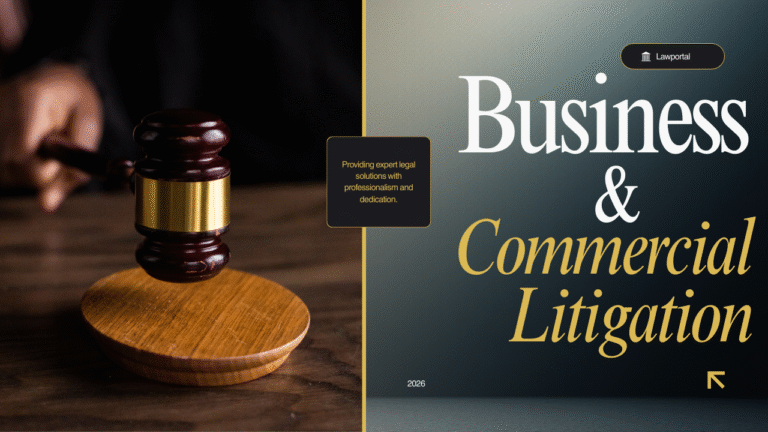Difference Between Lawyer and Attorney: A lot of people use lawyer and attorney as if they were identical — and in casual conversation that usually works. Still, there is a practical difference: a lawyer is someone who has studied law, while an attorney is a lawyer who has passed the bar and is licensed to represent clients in court. Understanding this distinction matters when you need official legal representation or court advocacy.
Understanding the Term “Lawyer”
A lawyer is any person who has completed law school and earned a law degree (commonly a Juris Doctor in the U.S.). Lawyers have deep knowledge of statutes, case law, legal research, and legal writing. They can advise on legal matters, draft contracts, and work in many law-related roles — corporate counsel, policy analyst, professor, researcher — even if they never represent clients in court.
Importantly, graduating from law school alone does not automatically authorize courtroom representation. That capability depends on licensure, which is why many law graduates are lawyers but not necessarily attorneys.
Understanding the Term “Attorney”
An attorney (often called attorney-at-law) is a lawyer who has passed the required bar exam and been admitted to practice in a particular jurisdiction. The label implies active practice and the legal authority to act on a client’s behalf: filing lawsuits, appearing in court, negotiating settlements, and officially representing someone during legal proceedings.
The word “attorney” historically means someone appointed to act for another — which captures the representative role attorneys play.
Key Differences Between Lawyer and Attorney
Even though the two overlap, the primary differences center on licensing and courtroom authority. Here are the core distinctions.
Education and Qualifications
Both lawyers and attorneys have completed law school. The distinction begins after graduation: to become an attorney, a law graduate must pass the jurisdiction’s bar exam and meet character and fitness requirements.
Licensing and Bar Examination
The bar exam is the watershed. Without passing it, a law graduate is not licensed to practice law as an attorney. Passing the bar grants admission to the state bar association and the legal right to represent clients in court.
Role and Responsibilities
Lawyers can perform legal research, prepare documents, advise, and work in many law-adjacent roles. Attorneys do all those things plus represent clients in litigation, file motions, and advocate before judges and juries.
Legal Representation in Court
Practically speaking, only attorneys can appear as counsel of record in court. A lawyer who hasn’t been admitted to the bar cannot sign pleadings or argue on a client’s behalf before a court.
| Aspect | Lawyer | Attorney |
|---|---|---|
| Has law degree | Yes | Yes |
| Passed bar exam | Not necessarily | Yes |
| Can represent clients in court | No (unless admitted) | Yes |
| Typical roles | Research, policy, teaching, compliance | Litigation, counseling, courtroom advocacy |
When to Use the Term “Lawyer”
Use “lawyer” when referring broadly to someone educated in law — for example, a legal scholar, policy advisor, or corporate counsel who may not be licensed for courtroom practice. If you’re unsure whether someone is admitted to practice, “lawyer” is a safe, accurate term.
When to Use the Term “Attorney”
Use “attorney” when you want to emphasize the person’s license to practice law and their ability to represent clients in court. For example: “My attorney filed the complaint” or “Speak to an attorney if you need representation in court.”
Overlap and Real-Life Examples
In daily language they’re often used interchangeably. Still, examples help:
- Law professor: a law degree holder teaching constitutional law — a lawyer, maybe not an attorney.
- Criminal defense: someone who passed the bar and defends clients in court — an attorney.
- Corporate compliance officer: a law graduate advising a company on policy — a lawyer or in-house counsel; may or may not be an attorney.
How Media and Culture Contribute to the Confusion
Television, film, and casual speech blur the distinction by calling courtroom advocates “lawyers” and vice versa. That has normalized interchangeable usage, which is why many people never notice the technical difference — until they need licensed representation.
How to Choose Between a Lawyer and an Attorney
If you need legal advice or document drafting, a lawyer or attorney may help. If your matter could lead to court proceedings, hire an attorney who is admitted in the appropriate jurisdiction. Always ask: “Are you licensed to practice in my state?” and verify bar membership if the engagement requires courtroom actions.
Ethical and Professional Standards
Attorneys are subject to bar rules, ethical standards, and disciplinary oversight. Lawyers who are not admitted may still follow professional standards in their roles, but they are not regulated by the bar for the practice of law. Licensing helps protect clients by ensuring accountability and minimum competency.
Common Misconceptions
- They’re exactly the same: Not technically — attorneys have licensure to appear in court.
- Lawyers can’t give legal advice: They can, but may be limited depending on licensure and jurisdiction.
- All law graduates automatically become attorneys: They must pass the bar and be admitted.
Conclusion
The difference is straightforward: a lawyer is educated in law; an attorney is a lawyer who is licensed and authorized to represent clients in court. Knowing the distinction helps you choose the right legal professional for your needs — especially when court representation is at stake.
FAQs
- 1. Are all attorneys lawyers?
- Yes. Every attorney has a law degree or equivalent legal education; they’ve also passed the bar and are licensed.
- 2. Can a lawyer practice without passing the bar?
- No. To represent clients in court, a lawyer must pass the bar and be admitted in that jurisdiction.
- 3. What’s an attorney-in-fact?
- An attorney-in-fact is someone granted authority via a power of attorney to act for another person; they are not necessarily a licensed lawyer.
- 4. Which term should I use professionally?
- Use “attorney” when referring to a licensed courtroom practitioner; “lawyer” is fine for general references to someone educated in law.
- 5. How can I confirm if someone is licensed?
- Check the state bar’s directory or ask the professional directly for their bar number and admission details.

